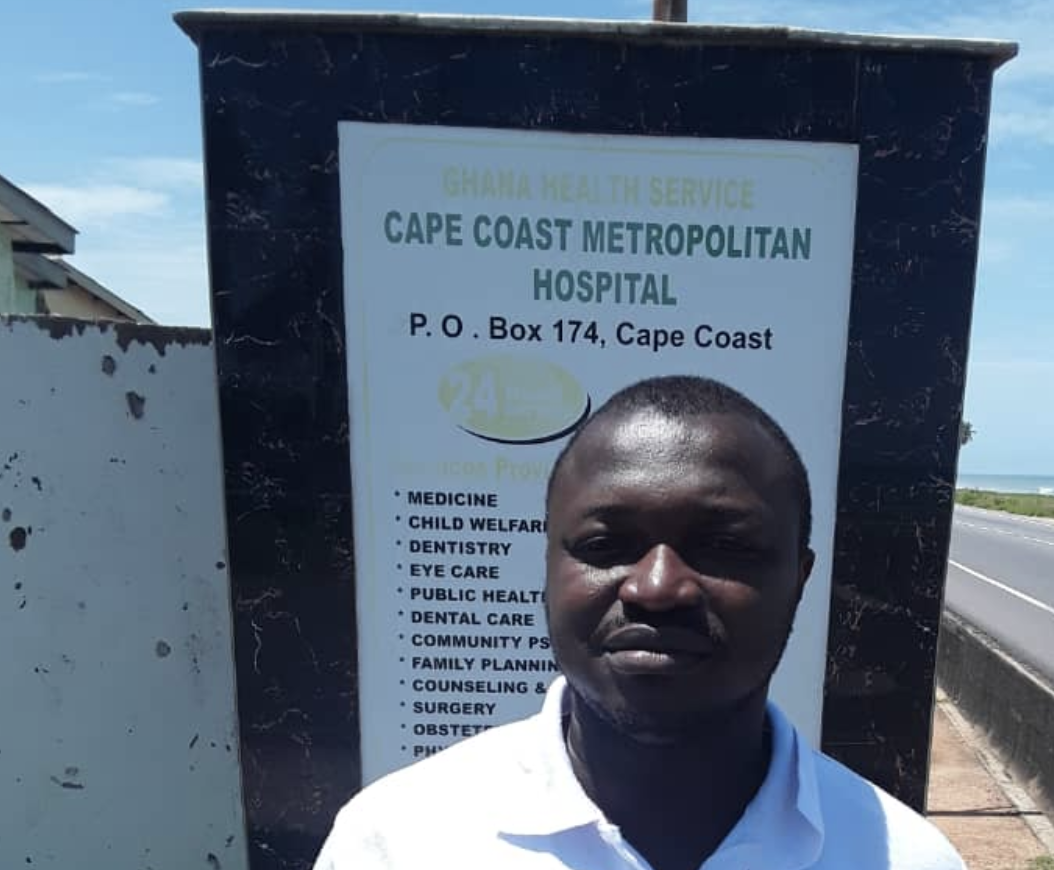Changing behavior and attitude

A voice from Ghana
I talked recently with Nicholas Nyantakyi, an anesthetist. He was kind enough to take time away from his medical duties at the venerable Metropolitan Hospital in Cape Coast, Ghana to share details with me about the COVID-19 pandemic. As of today, his hospital has 17 COVID-19 patients and he seemed clear they have not yet reached a crest in the number of cases. Metro has no ventilators, is low on both oxygen and PPE, and has a staff that is strong, but feeling stressed.
Ghana, with a population of just over 31 million now has over 7300 confirmed cases of COVID-19 with 34 deaths. The Cape Coast Metropolitan area has about 170,000 people, and there is only tentative data on the number of COVID-19 positive cases.
We talked about how many people in Cape Coast, very much like countless others in the majority world (aka global South), are day laborers, and following any ‘stay at home/self isolation’ orders is nearly impossible. The choice is between working and earning money to eat for the day or staying at home, presumably helping to slow the spread of the coronavirus, and suffering from hunger. The choice for too many is between the coronavirus and the ‘hunger virus.‘
Attitude and behavior are hard to change
Mr. Nyantakyi and I talked about the spread of the virus, and how getting people to practice social distancing, use face masks, and frequently wash theirs hands was very difficult. He observed, “It is all about attitude and behavior, and it is very hard to get people to change their ways.” Sharing stories from our respective communities, we agreed that it was exactly the same situation on both sides of the Atlantic. I told him about where I live and our current situation.
I live in Alamance County, North Carolina which has a population of about 161,000 people. As of today our mostly rural county has over 342 COVID-19 cases and 24 deaths. Just in the last few days, though, we made national news. Last weekend, May 23rd, a crowd of over 4000 people packed Ace Speedway (in the northern part of the county) to watch short track auto racing. Very few wore masks and none practiced social distancing. The Speedway anticipates and even larger crowd this weekend.
over 4000 people packed Ace Speedway (in the northern part of the county) to watch short track auto racing. Very few wore masks and none practiced social distancing. The Speedway anticipates and even larger crowd this weekend.
Let that sink in.
The city I live in, Burlington, the center of Alamance County, is #1 right now nationally for the rate at which COVID-19 deaths are doubling.
Indeed, just as Mr. Nyantakyi stressed, changing attitude and behavior is hard even in the case when lives are put in mortal danger when people go on with their ‘normal’ lives. The social media chatter about this car racing event -and the wisdom of the county leaders who allowed it to occur- has been sharply divided along political lines. The war against COVID-19 has demonstratively become a culture war here in the US.
Back to Cape Coast
Coming to grips with the COVID-19 pandemic has been difficult all over the world, but in the majority world the ‘hunger’ virus appears to be much more of a problem. The protocols and mandates put out by the World Health Organization (WHO) are, one one level, medically sound, and many leaders in majority world nations (e.e., Ghana, Bangladesh, India, etc.) are taking legal action to enforce behavioral changes in their populations geared toward ‘flattening the curve’, hoping to avoid catastrophic pressure on already strained and under sourced national and local medical facilities. Following WHO protocols is intended to control the corona virus but they are clearly making the hunger virus far worse.
Here’s what Mr. Nyantakyi had to say,
“The legal measures put in place to help flatten the curve in certain circumstances have been met with mixed reactions. I get worried because it becomes difficult to comprehend why we have to be compelled to adhere to measures for our own safety, our lives. And I keep wondering for how long can governments compel us to do the right thing. On the other side of it is the need for people to work because they have to eat and feed their family, finding the balance between protecting our lives from the virus and ensuring families are fed seems a bit far for now.”
Cape Coast, Ghana is just like urban areas all over the majority world where a large percentage -as much as 50-60%- of the population depends upon daily labor wages to buy food. Very simply, no work, no food. Remaining at home safe from corona virus means getting weaker every day due to lack of food.
I will have more to say about Cape Coast and Mr. Nyantakyi’s Metropolitan Hospital, but for now and am still thinking about the social and cultural factors which make deeply rooted attitudes and behaviors so difficult to change.
In the meantime, please contact me here(arcaro@elon.edu) if you have any comment or feedback.


 Follow
Follow